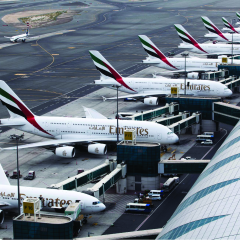Control Room
The Control Room was established to provide an effective and organised, professional dispatching system. The Control Room and the selected Operators manage the organisational aspects on the server, such as the intake of emergency calls, managing unit distribution and controlling the radio systems. The Control Room is split up into many sub-divisions that are responsible for different aspects of the emergency handling process. The division is a prestigious and professional sector of the server, and therefore you must exhibit high standards to be a part of the division.
Currently the Control Room operates out of three Emergency Operations Centre (EOC). These being at Whitechapel Fire Station, Davies Police Station and Mission Row Police Station.
Command Structure
The Control Room is commanded by a team of experienced, friendly and helpful members of the community. It is imperative that all issues are raised appropriately and aired to the correct rank/member, for it to be resolved correctly. The Control Room holds the below structure for this to be enforced
Control Room Supervisor (E5) --> Control Team Leader (O1-O4) --> Control Room Trainer --> Control Room Operator --> Probationary Controller
Divisions & Subdivisions
Control Room Operators
Control Room Operators are responsible for the dispatching of Emergency Services to incidents. Using Sonoran CAD, Controllers log incidents, dispatch emergency services to Emergency 999’s we receive as well as also maintaining a balance of unit distribution.
Typical Workload
- Dispatch Emergency Services to incidents
- Respond and resolve Radio call ups
- Manage the airwaves ensuring radio comms are passed.
- Maintain CAD to ensure calls are closed when dealt with
- Request updates from on scene units
- Use CCTV to view incidents and record further details as well as reporting new incidents that occur.
Call Resolution Officers
Call Resolution Officers are operators who respond and deal with Emergency 999’s both Verbally as well as through CAD. These operators deal with high stress situations and must be able to provide life saving advice which could turn the tide in emergencies. 999’s are written up on CAD by the CRO when a verbal call is taken which is then passed on to the Control Room to dispatch resources.
Typical Workload
- Take in Verbal Emergency calls through Interops 3
- Provide reassurance and advice to ensure the caller's safety and security.
- Request additional information from the caller to aid emergency services in their efforts.
- Provide Control Operators with the up to date 999’s so units are aware of what they are responding to.
- Provide life saving medical and safety advice in the event of serious injury as well as entrapment by fire or environment.
- Use CCTV to view outstanding reported incidents and provide further information to resources.
Force Incident Managers
Force Incident Managers (FIM) are talented and dedicated Operators who are hand picked for the role. Force Incident Managers effectively manage, assess and handle incidents as well as effectively laising and working alongside divisional command teams during incidents to bring a safe resolution to incidents.
A Force Incident Manager will also manage the authorisation aspect replacing the method of calling for a Sergeant or Inspector.
Typical Workload
- Manage and Solve incidents effectively
- Assess authorisation requests and respond with adequate justifiable reasons behind the authorisation,
- Assist Control Operators with dealing with multiple incidents
- Monitor calls and plan ahead.
Recruitment
To join the Control Room, you must meet the following requirements:
- PC+ or Equivalent within the server
- 40+ hours in-game
- Fantastic communication skills and radio etiquette
- Good, quality microphone and speak with clarity and fluency
- Have no TX warnings/kicks/bans in the last 6 weeks - May accept Minor offences
- Able to commit to a minimum of 8 hours a month
- Work within a team in high stress situations to ensure the server runs smoothly.
You can apply for the Control Room by clicking here. Applications open periodically.
Meet our team







